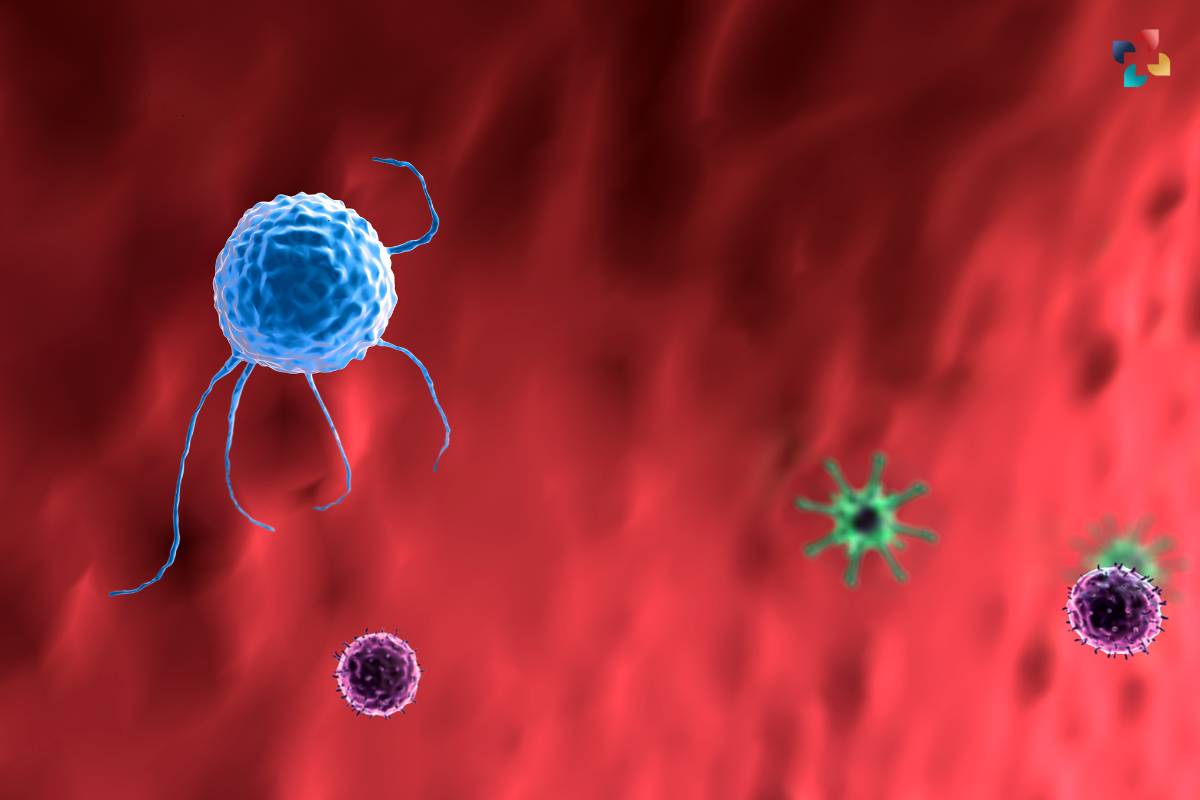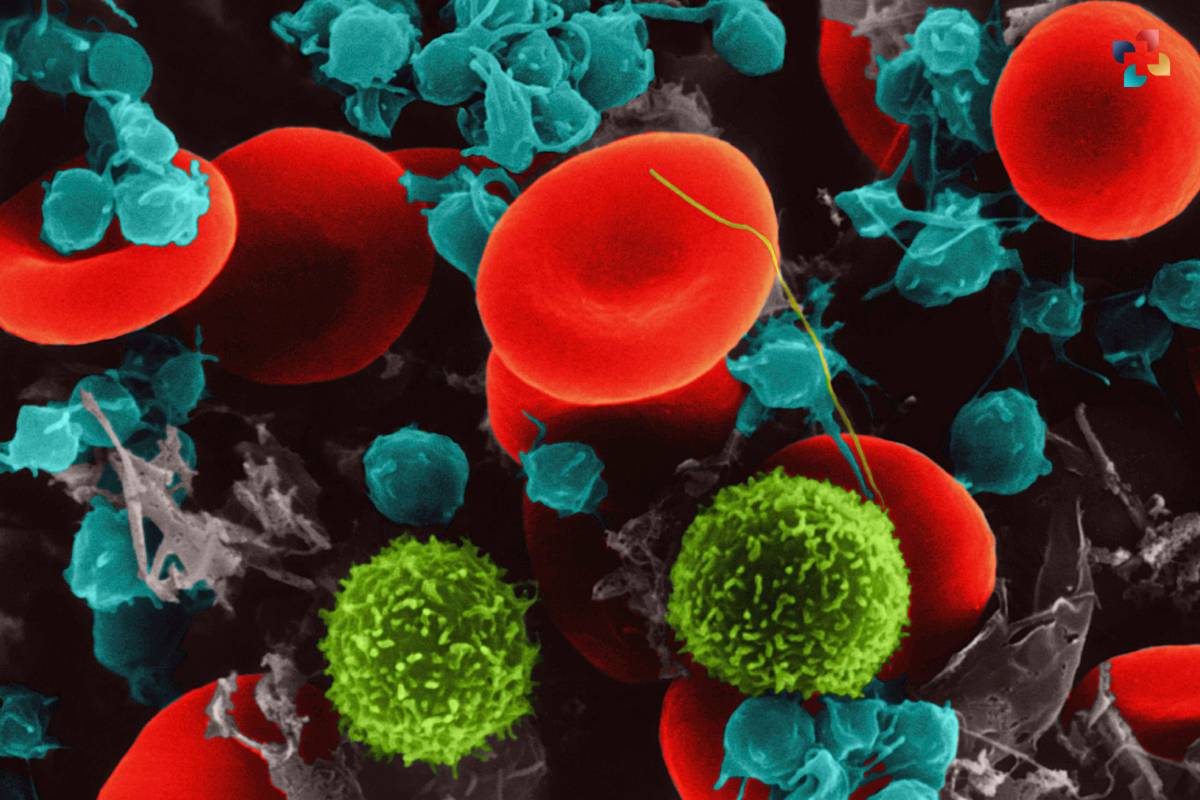Introduction:
High lymphocytes, medically known as lymphocytosis, is a condition characterized by an elevated count of lymphocytes in the bloodstream. Lymphocytes are a type of white blood cell that plays a crucial role in the body’s immune system, helping to defend against infections and diseases. While an increase in lymphocyte count can be a normal response to infections, it can also indicate underlying health issues. In this comprehensive guide, we will delve into the causes, symptoms, diagnosis, and treatment options for high lymphocytes.
What are High Lymphocytes?
High lymphocytes, or lymphocytosis, occur when the body produces an excess number of lymphocytes, leading to an elevated count in the bloodstream. Lymphocytes are a type of white blood cell derived from stem cells in the bone marrow and are an essential component of the immune system. They are primarily responsible for identifying and destroying foreign invaders such as bacteria, viruses, and other pathogens.
Causes of High Lymphocytes:

Several factors can contribute to high lymphocyte counts, including:
1. Infections
Acute viral infections, such as the flu, measles, or mononucleosis, can trigger an increase in lymphocyte production as the body mounts an immune response to fight off the invading pathogens.
2. Chronic Infections
Persistent bacterial or viral infections, such as tuberculosis or HIV/AIDS, can lead to long-term elevation of lymphocyte counts.
3. Autoimmune Disorders
Conditions like rheumatoid arthritis, lupus, or multiple sclerosis can stimulate the immune system, causing an overproduction of lymphocytes.
4. Leukemia
Certain types of leukemia, such as chronic lymphocytic leukemia (CLL) or acute lymphoblastic leukemia (ALL), are characterized by the abnormal proliferation of lymphocytes in the bone marrow and bloodstream.
5. Lymphoproliferative Disorders
Conditions that cause uncontrolled growth of lymphocytes, such as lymphoma or lymphocytic leukemia, can result in high lymphocyte counts.
Symptoms of High Lymphocytes:

The symptoms of high lymphocytes can vary depending on the underlying cause and severity of the condition. In many cases, individuals may not experience any noticeable symptoms, especially if the increase in lymphocyte count is mild or transient. However, common symptoms associated with high lymphocytes may include:
- Fatigue
- Fever
- Enlarged lymph nodes
- Night sweats
- Unintentional weight loss
- Frequent infections
- Persistent cough or sore throat
In cases of high lymphocytes, symptoms can often be nonspecific and overlap with those of other medical conditions, making diagnosis challenging without proper evaluation. Fatigue is a common complaint among individuals with elevated lymphocyte counts, as the body’s immune system works overtime to combat infections or underlying diseases. Fever, often accompanied by chills, can indicate an inflammatory response triggered by the immune system in response to infection.
Enlarged lymph nodes, also known as lymphadenopathy, may be palpable in areas such as the neck, armpits, or groin, indicating increased activity of lymphocytes in response to infection or inflammation. Night sweats, characterized by excessive sweating during sleep, can be distressing and disruptive to sleep patterns, and may be indicative of an underlying infectious or inflammatory process.
Unintentional weight loss, defined as a loss of more than 5% of body weight over six to twelve months, can occur in individuals with high lymphocyte counts due to increased metabolic demands associated with chronic infections or diseases. Frequent infections, such as respiratory infections, urinary tract infections, or skin infections, may occur more frequently in individuals with compromised immune systems, leading to recurrent illnesses.
Persistent cough or sore throat may also be present in individuals with high lymphocytes, particularly if the underlying cause is respiratory in nature. These symptoms may persist despite treatment with antibiotics or other medications, warranting further evaluation to identify the underlying cause.
It is important to note that while these symptoms may raise suspicion for high lymphocytes, they are not specific to the condition and can occur in other medical conditions as well. Therefore, individuals experiencing any of these symptoms should seek medical attention for proper evaluation and diagnosis.
Diagnosis of High Lymphocytes:

Diagnosing high lymphocytes typically involves a comprehensive evaluation by a healthcare professional, including a thorough medical history, physical examination, and laboratory tests. Blood tests, such as a complete blood count (CBC) with differential, can provide valuable information about the number and types of white blood cells present in the bloodstream, including lymphocytes. Additional diagnostic tests, such as imaging studies or bone marrow biopsy, may be necessary to determine the underlying cause of high lymphocytes.
Treatment Options for High Lymphocytes:
The treatment for high lymphocytes depends on the underlying cause of the condition. In cases where high lymphocyte counts are due to infections, supportive care, rest, and symptom management may be sufficient, along with specific treatments targeted at the underlying infection. For autoimmune disorders, immunosuppressive medications may be prescribed to help reduce inflammation and suppress the immune response. In more severe cases, such as leukemia or lymphoma, chemotherapy, radiation therapy, or targeted immunotherapy may be necessary to control the proliferation of abnormal lymphocytes and manage the disease.
Conclusion:
High lymphocytes, or lymphocytosis, can be a sign of various underlying health issues, ranging from infections to autoimmune disorders and cancers. Early diagnosis and appropriate treatment are essential for managing the condition and preventing complications. If you experience any symptoms suggestive of high lymphocytes or have concerns about your health, consult with a healthcare professional for a thorough evaluation and personalized treatment plan.
FAQs
1. What are lymphocytes, and what role do they play in the body?
Lymphocytes are a type of white blood cell that plays a crucial role in the body’s immune system. They help defend against infections by recognizing and attacking foreign invaders such as bacteria, viruses, and abnormal cells.
2. What causes high lymphocyte counts?
High lymphocyte counts, known as lymphocytosis, can be caused by various factors, including infections (viral, bacterial, fungal), autoimmune diseases, chronic inflammation, certain medications, stress, smoking, and leukemia or lymphoma.
3. How is high lymphocyte count diagnosed?
High lymphocyte counts are typically detected through a complete blood count (CBC) test, which measures the number of different types of blood cells, including lymphocytes. Additional tests, such as flow cytometry or lymph node biopsy, may be performed to determine the underlying cause.
4. Can high lymphocyte counts be treated?
Treatment for high lymphocyte counts depends on the underlying cause. In cases of infection, treatment may involve antibiotics, antiviral medications, or antifungal drugs. For autoimmune diseases, immunosuppressive medications may be prescribed. In some cases, addressing lifestyle factors such as stress or smoking cessation may help reduce lymphocyte counts.
5. Is a high lymphocyte count always a cause for concern?
Not necessarily. In some cases, such as during an acute infection, a temporary increase in lymphocyte counts is a normal response of the immune system. However, persistently high lymphocyte counts or those accompanied by other symptoms may indicate an underlying medical condition that requires further evaluation and treatment. It is important to consult a healthcare provider for proper diagnosis and management.








